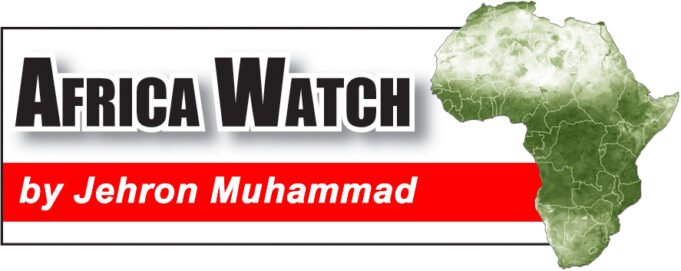During my nearly two months in Sudan, leaving less than a week before the October 25, 2021, military coup, I reflected with fascination on how Sudan’s majority Muslim and majority Black, with Arab and Turkish mixture population, could live and in some cases thrive in such “underdevelopment,” as Walter Rodney coined it in his 1973 book: “How Europe Underdeveloped Africa.”
Dr. Rodney wrote that an “indispensable component of modern underdevelopment is that it expresses a particular relationship of exploitation: namely, the exploitation of one country by another. All of the countries named as ‘underdeveloped’ in the world are exploited by others; and the underdevelopment with which the world is now preoccupied is a product of capitalist, imperialist, and colonialist exploitation.”
He added, “African and Asian societies were developing independently until they were taken over directly or indirectly by the capitalist powers. When that happened, exploitation increased and the export of surplus ensued, depriving the societies of the benefit of their natural resources and labor.”
In my everyday living with my new Sudanese wife, suffering the discomfort of electricity blackouts, the occasional discomforting experience of no running water, limited internet connectivity, and the worst pothole laden “bad” roads anywhere in the world, the root cause, according to Dr. Rodney, is underdevelopment. Or as the Guyanese scholar suggests, the consequences or debilitating aftereffects of deliberate underdevelopment.
Now back in the United States I’ve learned via firsthand knowledge—as one friend called it “wallet knowledge”—to appreciate the economics of exploitation.
When the Sudanese government, to receive the pittance it was promised by the U.S., and International Monetary Fund (IMF), all it had to do was remove much needed subsidies on staples like bread and petroleum.
Now that we’re post Sudan’s recent military coup and world powers, including the U.S. are sanctioning or holding back much needed funds it had promised, inflation has gone through the roof. I understand because of the economics my newfound Sudanese friends and family are forced to suffer through, not to think of the brain drain of Sudanese professionals.
During my frequent visits to the section of Khartoum called Riyadh, I’d hang out in the fashionable Qahwa Republic Coffee Shop. I’d be there many times with my good friend and documentary filmmaker Al-Sanosi Adam and Dr. Mohammad Abdelmohsin, who works for NASA and has a Ph.D. from Stanford University. We’d meet with and interview professionals and students, many of whom talk about brain drain because of limited work in their professions and were looking to leave the country.
One impressive 26-year-old sister, Niama Iyab, a former employee at Qahwa Republic, did her residency at Khartoum’s Boile Hospital while working at the coffee shop.
“I’m a medical doctor,” she said. “I’m leaving Sudan for a while. I’m going to Saudi Arabia. I go to do the exam, and if they accept me, and I pass the Saudi Medical Licensure Examination (SMLE), I will practice medicine in Saudi Arabia.”
To be clear, she said, “if things were different” in Sudan she’d stay. But because of conditions and it being difficult to practice medicine, she is leaving.
“Even if I practice medicine here, I’m not going to have a good practice. Everything, they make things harder. The management, the protocols, everything, it’s not acceptable,” the young woman explained.
“Most of it is just ‘jungle medicine,’” she added. Asked to define “jungle medicine,” Dr. Iyab said, “That means they don’t practice the real medicine because they don’t have medication, they don’t have the equipment. They just trying to save patients (life) as much as they can with limited equipment and limited medicines for treatments.”
According to the African Intelligence in a piece titled: “The scramble for Sudan,” the vultures are scrambling. The fact that neocolonial, neoliberal interests divided Africa’s largest country that has economically decimated the North and South to the glee of Anglo and Franco powers, is a case in Walter Rodney’s point.
The U.S.-engineered secession masked in what was called the Comprehensive Peace Accords of South Sudan, cost Sudan 75 percent of its oil production, two-thirds of export earnings and over half of its fiscal revenue. By December 2018, the economic decline had led to shortages of fuel, medicine, and cash. The tripling of the bread price because of austerity measures imposed by the government sparked demands for regime change that ushered in mass protests, reported the African Intelligence.
Dr. Iyab’s friend Samia Husein said, “I love Sudan.” Raised in Brunei since a child by her Sudanese parents, who worked in Brunei, Husein is a teacher, who thinks of Sudan as “home.” She told this writer, “Even though my family is Sudanese, I’ve lived my whole life outside of Sudan. I didn’t even know the language that well.”
Ms. Husein has all the passion of someone reconnecting with their Sudanese roots, similar to Black Americans coming into a knowledge of self, their culture and history. What a blessing witnessing and recording her passion, that she said she hadn’t expressed in such glowing terms until that very moment. Such passion is what will guarantee the eventual goal of a civilian government by Sudan’s growing protest movement.













